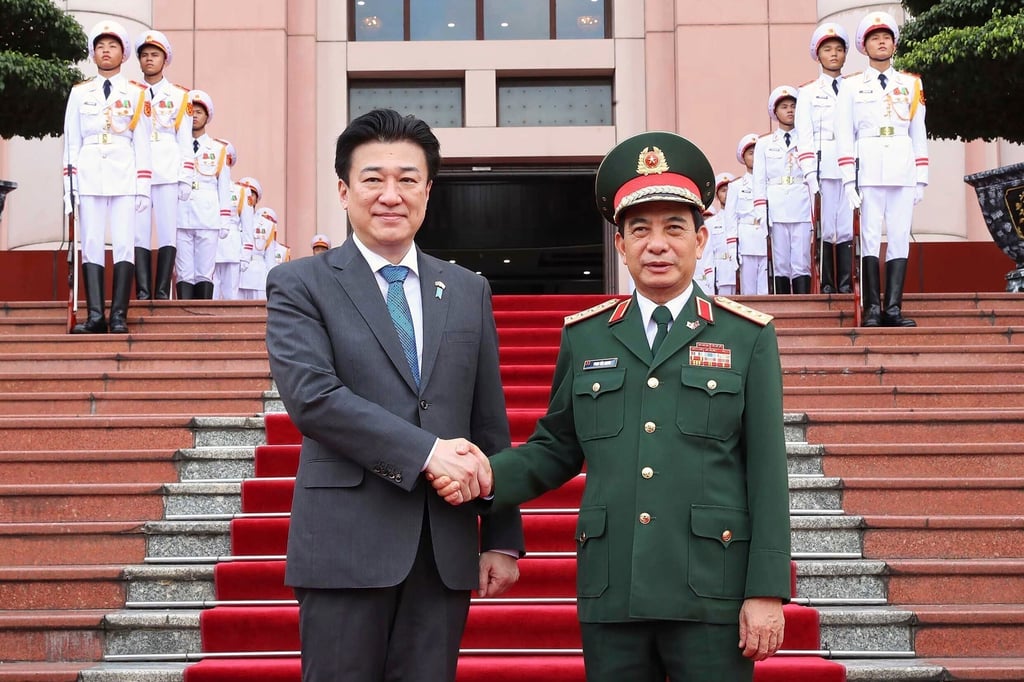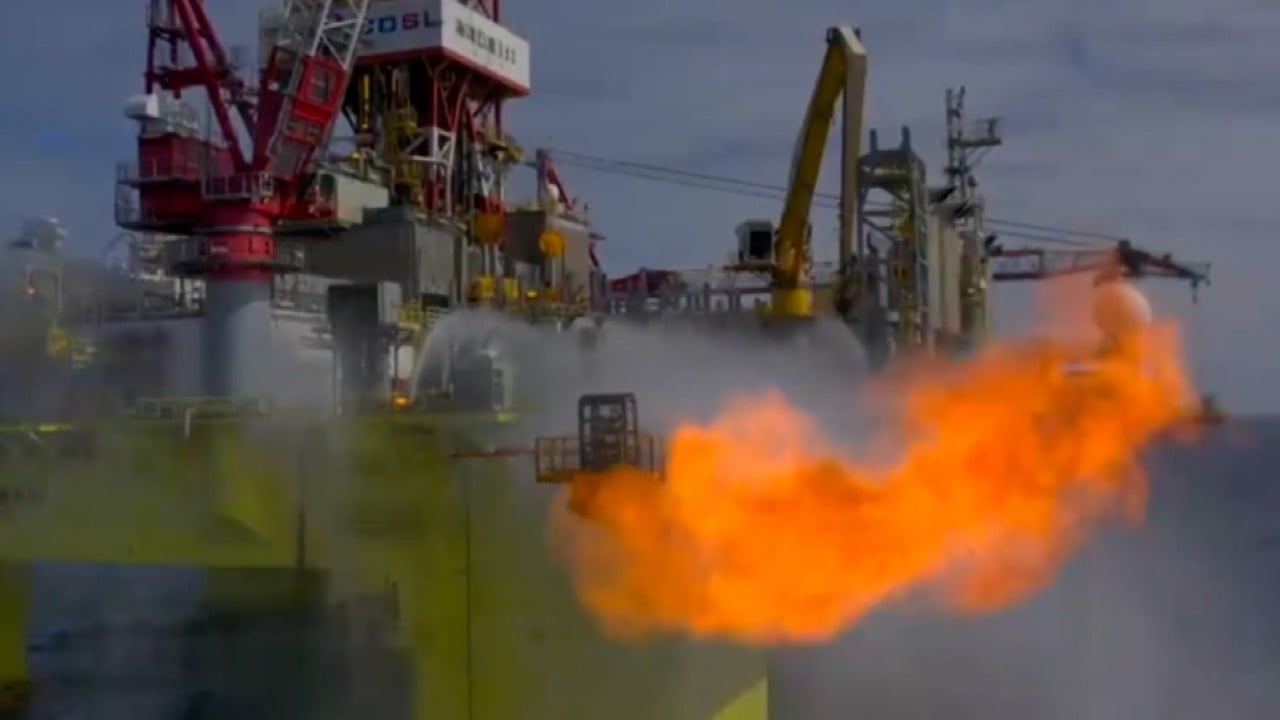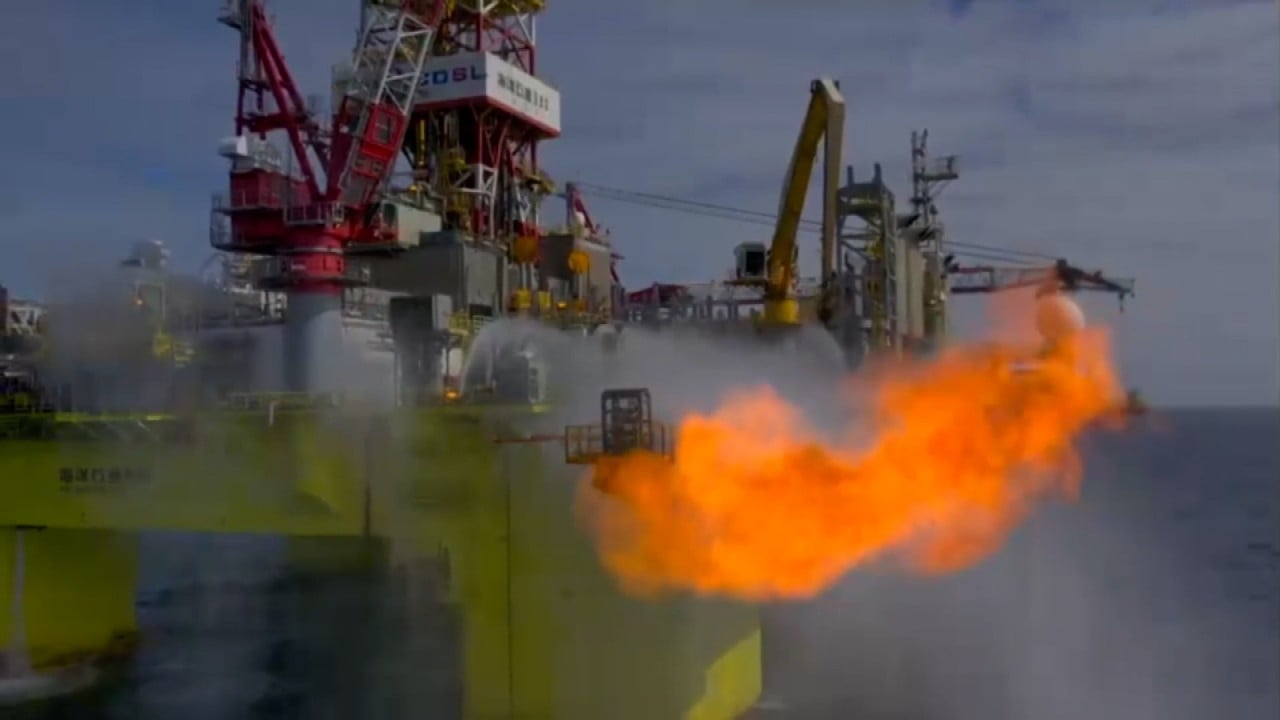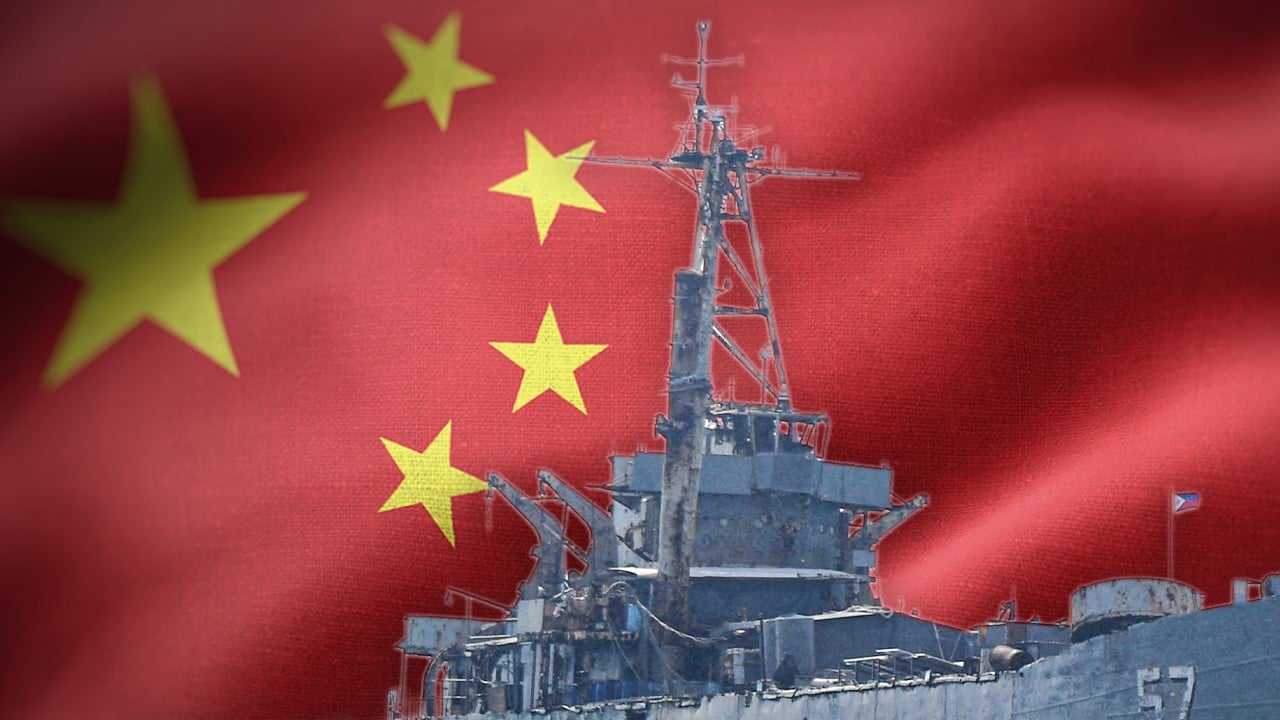Japan’s recent flurry of military engagements with several of China’s rival claimants in the South China Sea will have put Beijing on alert – and possibly look for ways to counter them, according to observers.
The assessments follow Japan’s pledge last week to deepen ties with Vietnam, during a visit by Japanese Defence Minister Minoru Kihara. As part of an agreement on defence equipment and technology transfer, Tokyo said it would provide two supply transport vehicles to Hanoi.
Vietnam’s defence chief, General Phan Van Giang, called for the two countries to push ahead towards a “new, effective phase … for peace and prosperity in Asia and the world”, Vietnamese media reported.
A week earlier, Japan held a joint military exercise with the Philippines in the South China Sea – the first of its kind.
Manila called the drills “part of the ongoing efforts to strengthen regional and international cooperation towards realising a free and open Indo-Pacific”, according to a statement from the Philippine armed forces.
China claims sovereignty over almost the entire resource-rich South China Sea. These claims overlap with several countries in the region, including the Philippines and Vietnam, which have led to ongoing disputes. Tensions have remained particularly high between Beijing and Manila over a series of recent clashes.
Collin Koh, a senior fellow at the S. Rajaratnam School of International Studies at Singapore’s Nanyang Technological University, said Japan’s move to provide security-related material to Vietnam was not surprising, given that it had previously offered coastguard aid.
But it was a “notable step”, he said, as the recent arrangement was directed by Japan’s defence ministry whereas in previous instances they had been led by the Japan International Cooperation Agency (JICA).
JICA is a government body that traditionally focuses on economic and social assistance to developing countries, but in recent years it has been involved in programmes related to maritime security.

The move, Koh suggested, was an example of Japan tailoring its Vientiane Vision – a defence initiative that guides Tokyo’s cooperation with members of the Association of Southeast Asian Nations (Asean) – to Vietnam’s needs.
“Hence, it starts with non-lethal and relatively low-tech or unsophisticated material in the form of logistics vehicles,” he said, referring to the supply transport vehicles.
“I believe this is a test balloon. This latest transfer may potentially elevate to the transfer or sale of more sophisticated equipment in the future, such as radars.”
China would be “wary” of this development, Koh said, noting that Japan had close economic ties and growing security links with Vietnam.
“I think Beijing will have come to the long-term assumption that Tokyo would some day in the future transfer or sell lethal arms to Vietnam,” he said.
“That will, however, boil down to Hanoi’s eventual strategic calculations, especially in view of its proclivity to try to balance those key interests, including stable ties with China.”
Greg Poling, director of the Southeast Asia programme at the Washington-based Centre for Strategic and International Studies, said the recent agreement between Japan and Vietnam may be a sign of a deepening security relationship.
He pointed out that Vietnam had elevated its diplomatic ties with Japan to a comprehensive strategic partnership – the highest level in Hanoi’s diplomatic hierarchy – as part of its efforts to deepen ties with other external partners to balance China’s influence.
As for Japan’s recent maritime exercise with the Philippines, Poling said it was “just the latest in a string of security developments in [their] security relationship”.
Tokyo and Manila believe they face a shared threat in China and are responding accordingly
Other examples include the four-way maritime drills by Australia, Japan, the Philippines and the United States in April, and a landmark agreement signed between Tokyo and Manila last month that would ease military access for both countries.
“Tokyo and Manila believe they face a shared threat in China and are responding accordingly,” Poling said. Japan has competing claims with China in the East China Sea.
“The only thing Beijing could do now to halt that deepening partnership would be to stop using force and the threat of force in its maritime disputes, which is unlikely under Xi’s leadership,” he said.
Prashanth Parameswaran, a fellow with the Washington-based Wilson Centre’s Asia programme, said the recent defence interactions between Japan and Southeast Asian states pointed to Tokyo’s growing security role in the region, which “complicated China’s quest for greater regional dominance”.
“China may prefer the status of regional hegemon in Southeast Asia, but its own actions are leading countries to seek options elsewhere, including Japan, to balance its growing influence,” said Parameswaran, who is also founder of a newsletter on regional developments called Asean Wonk.
“Japan’s greater security role in Southeast Asia is slowly but surely becoming clearer.”
Lyle Morris, a senior fellow at Asia Society Policy Institute’s Centre for China Analysis, called the Japan-Vietnam agreement “significant”, saying it was an illustration of Japan’s increasing role in supporting military technology transfers to South China Sea claimants.
He said that as Japan was not a claimant of the South China Sea, defence exchange and equipment support was one of the main ways Japan could play a prominent role in aiding countries looking to bolster their capabilities.
Morris suggested the recent developments would be seen as a “concerning trend” for China, which he said “did not like ‘external powers’ to intervene” in the territorial disputes.
“It suggests that claimants are eager and willing to engage other powers in the region to bolster their own defence capabilities. I would imagine China will lodge a diplomatic protest with Japan and urge Japan to stay out of the dispute and not complicate the situation,” he said.
Koh said China might seek to counter such regional security arrangements with its own outreach – but so far that had brought limited success.
While there have been some wins with Southeast Asian states ranging from Cambodia to Laos and Thailand, it has not been the case for others, especially its rivals in the South China Sea.
“This is also a strategic reality that perhaps Beijing has come to terms with … that there will be limitations to these outreaches for defence and security engagements with its Southeast Asian South China Sea rivals who appear more at ease having such engagements with extra-regional powers that clearly are designed to balance against China’s moves,” he said.
But, Koh noted, while Beijing would be wary of the recent developments, it “may not be overly worried” as it appeared to consolidate its “physical position” in the South China Sea with its rapid military and coastguard build-up.
“Beijing appears to exude a certain flair of confidence of its ability to handle extra-regional presence,” he said.
While China still pushed its narrative that extra-regional powers – such as the US and Japan – were “meddling” in the disputed seas, it has so far not made significant moves to counter these activities.
Zhou Bo, a senior fellow at Tsinghua University’s Centre for International Security and Strategy, said the deepening ties between Japan and Southeast Asian countries reflected a shift in Tokyo’s diplomatic strategy.
He said this stemmed from Japan’s concern over a possible use of force by China in the South China Sea and Taiwan Strait, which he called “unreasonable”.
“[Japan’s] judgment of the regional situation has led to its desire to interact with those countries that have conflicts with China,” said Zhou, who is a retired PLA senior colonel.
However, he added, Japan’s recent agreement with Vietnam was “not a big deal”.
“I don’t think this [military] aid will play any role in changing the situation in the South China Sea,” he said. “It’s just a drop in the bucket. [China] does not need to respond to it.”
Zhou stressed that China had always faced interference by “foreign forces” in the South China Sea.
“This sort of opposition [towards China] is inevitable in that they believe they have a stake in the security of the South China Sea. But since no one is impeding freedom of navigation, it won’t necessarily have a big impact,” he said.




